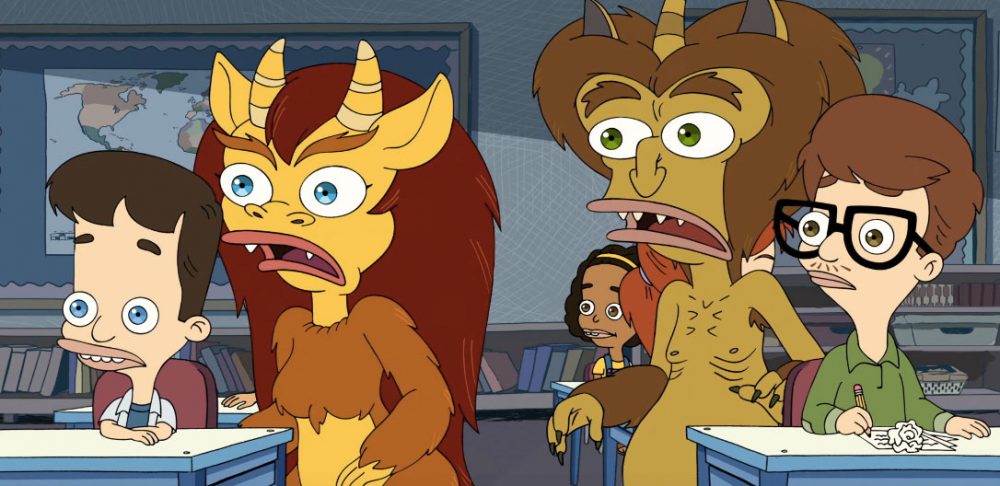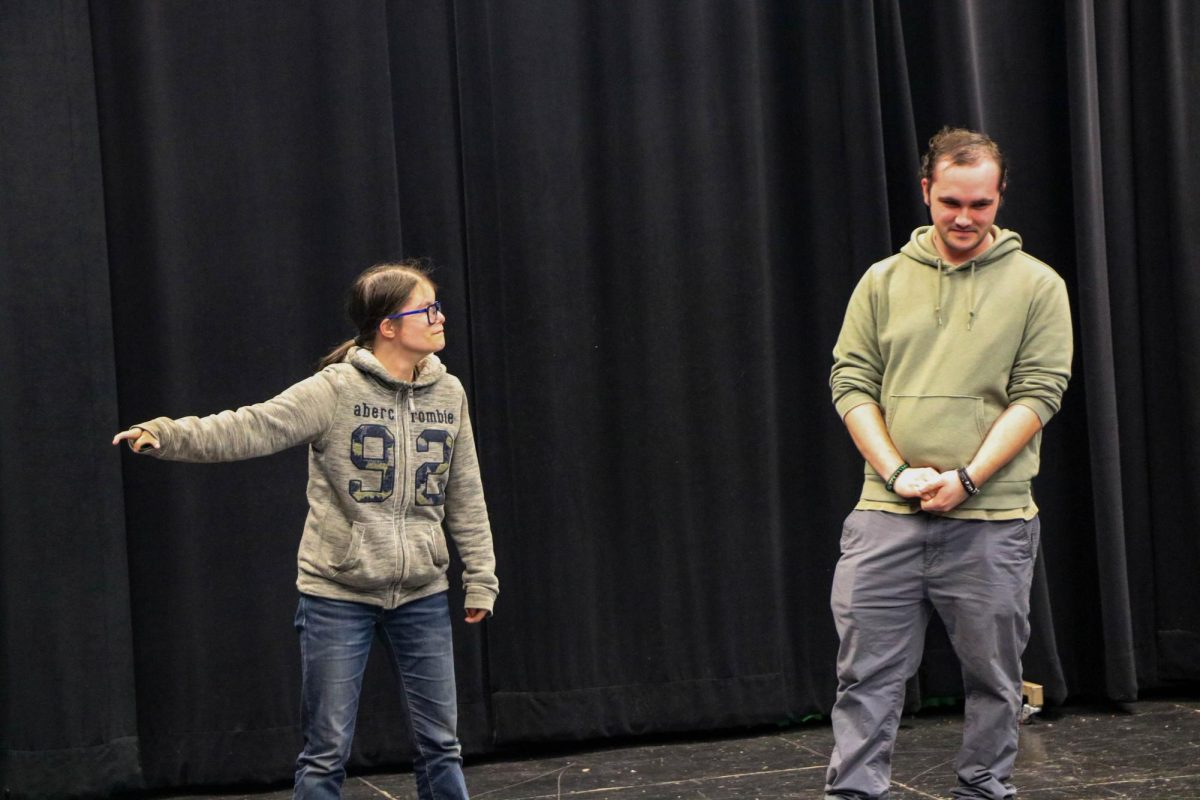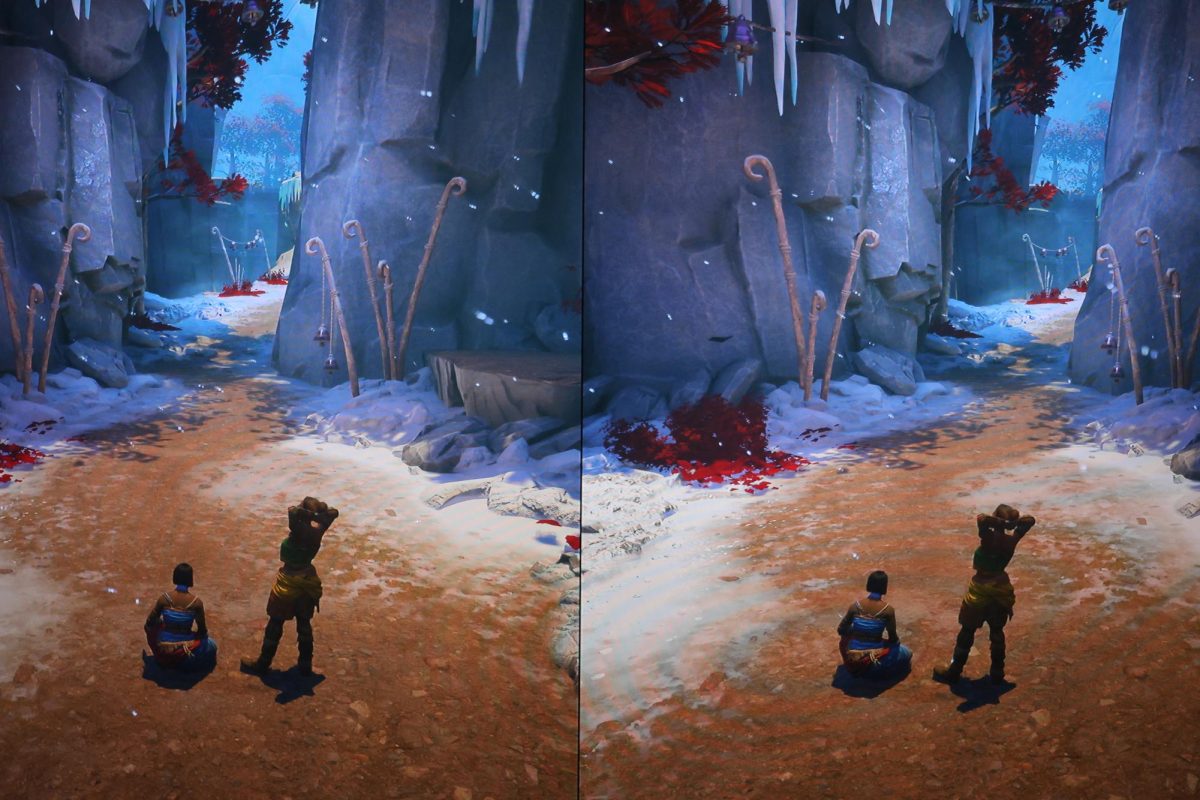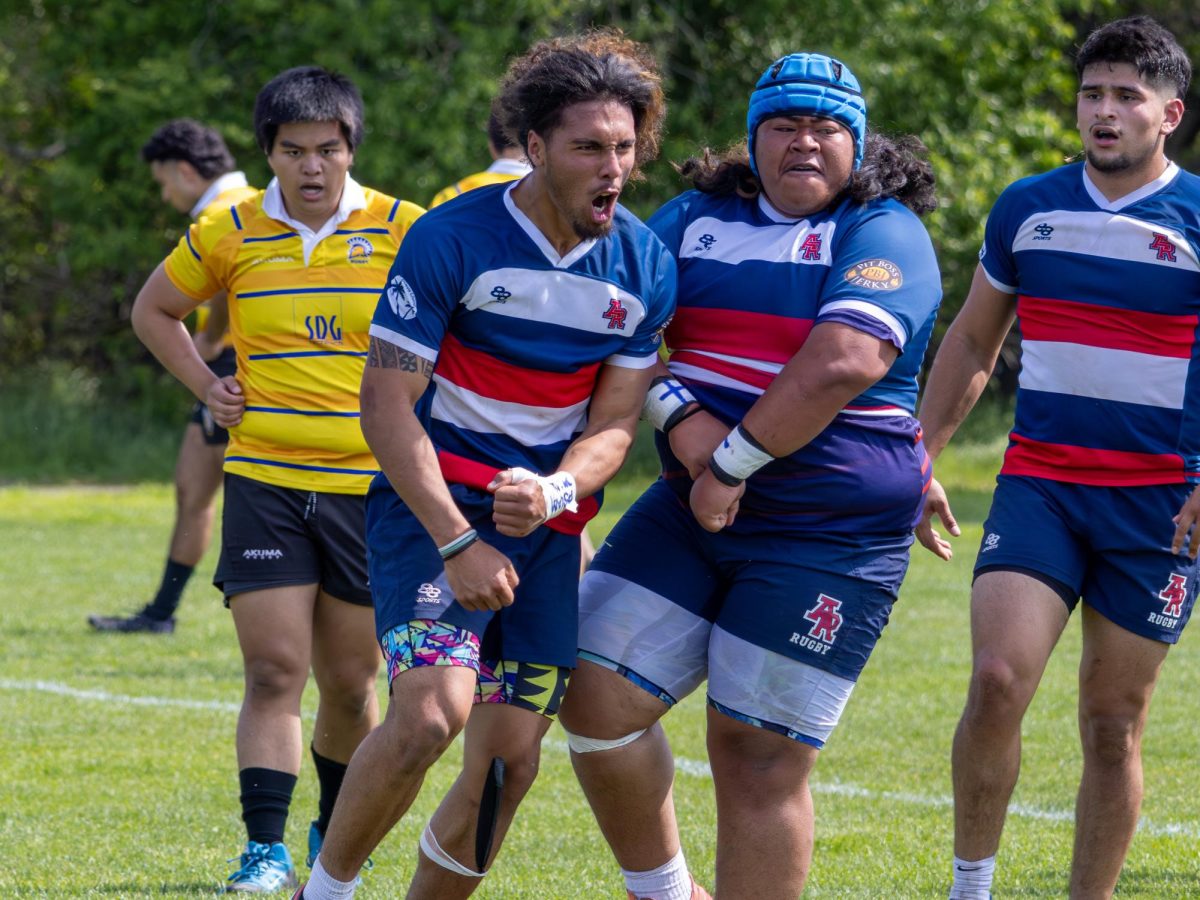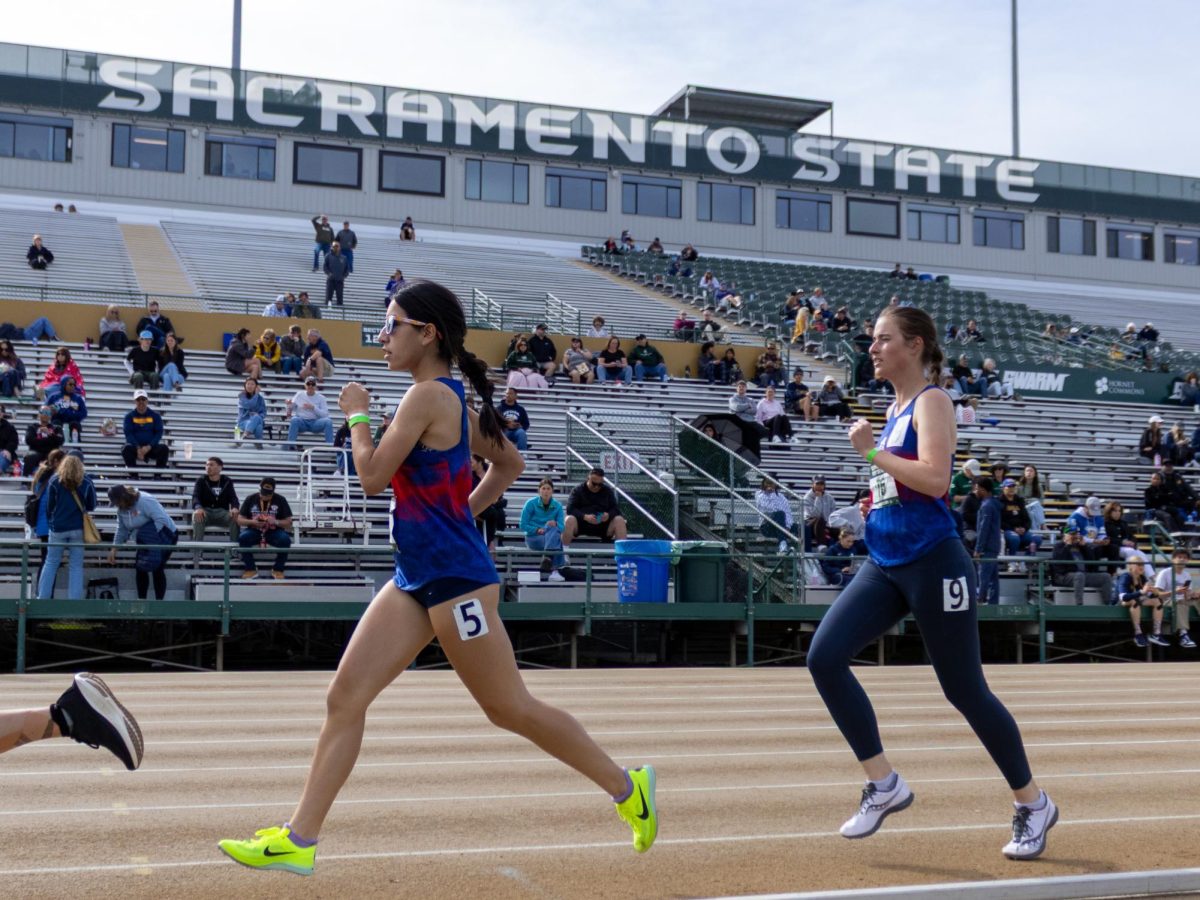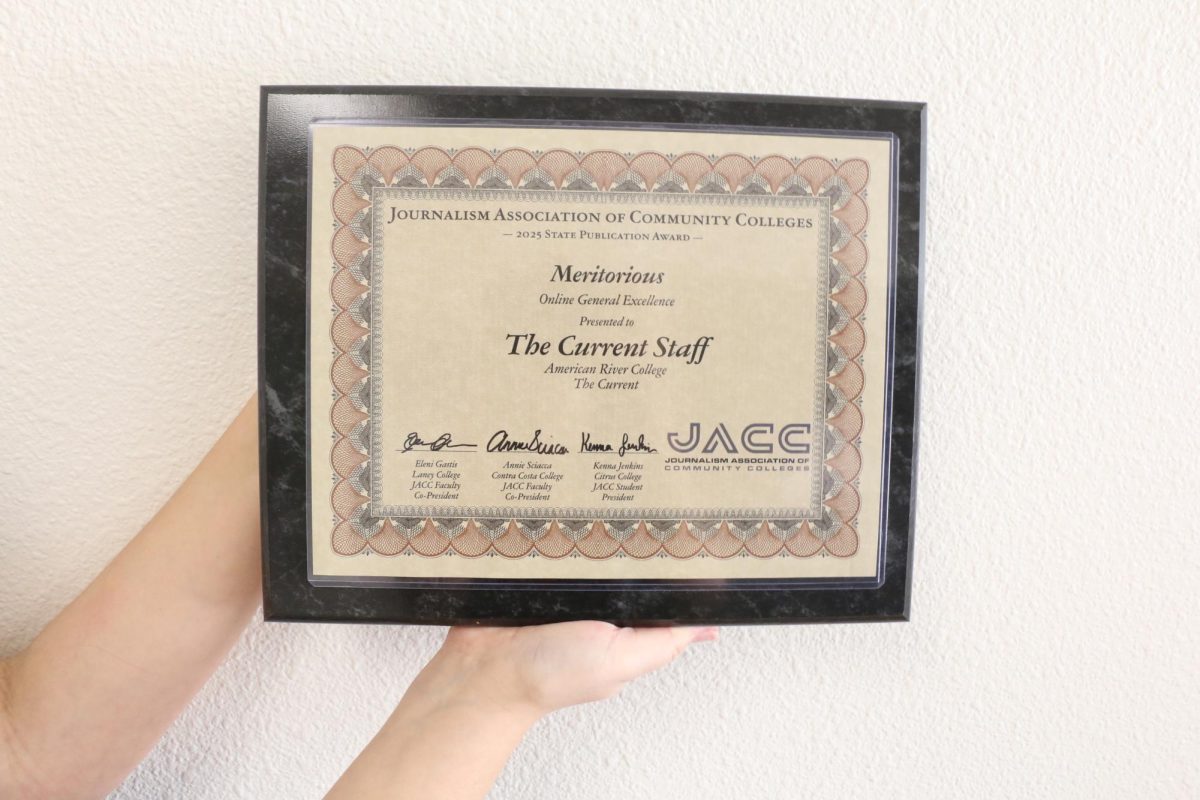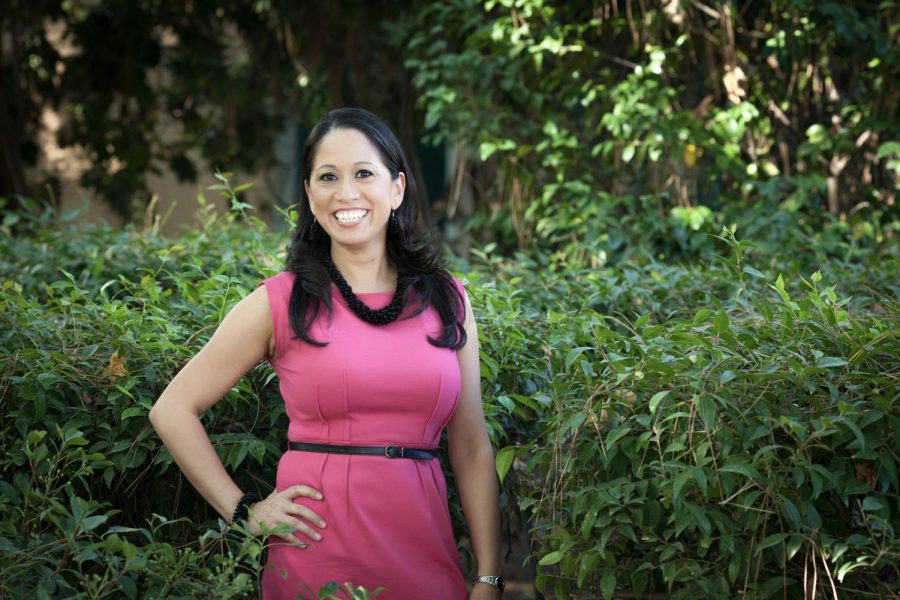Growing up is difficult for most people. It is a set of trials and tribulations everyone faces, but the undeniable truth of the matter is that most people think that they are going through these difficult times alone. This, however, is a fabrication, as everyone goes through this.
“Big Mouth,” which debuted on Netflix in September 2017, ushers in the idea that people are more alike than they imagine. The animated educational adult comedy’s third season aired Oct. 4, 2019.
“Big Mouth” is a very personal show that unites its viewers in its challenging content about puberty and human reaction to it. It is a very crass show, one of the funnier, more unapologetic shows to date, matching the educational and comedic value of “South Park.” It is really funny and educational.
“Big Mouth” follows a friend group of seventh graders, consisting of the five main characters and a large amount of side characters. The five main characters are Andrew Glouberman, Nick Birch, Jessi Glaser, Jay Bilzerian, and Missy Foreman-Greenwald.
Andrew and Nick are normal kids going through puberty, dealing with emotional, masturbation and masculinity issues, while also dealing with being attracted to girls. Jessi is the girl going through puberty and has the female perspective, but she comes from a home of divorce, and balancing social/political ideals and her true wants. Jay comes from an abusive family, has a very prominent ADHD problem; he is also a chronic masturbator, but he continues to explore himself and his sexuality. Missy is exploring her femininity, while still remaining herself. She is also an object of desire for Andrew.
The creators of “Big Mouth” structure each season around certain topics involving puberty and coming of age. The first season is about hormones and the human body changing. The second season involves how people deal and live with shame.
This season was a little harder to crack, as there was no set theme. No ‘Shame Wizard,’ no new ‘Hormone Monster/Monstress,’ no character to set the theme. The ads would have one believe that it was about toxic masculinity, but there are too few episodes on that subject. Season one’s episodes are dedicated in its theme, with a platitude of secondary themes per episode. Season two only covers eight episodes on shame, with secondary themes littered around the season.
The third season has barely four episodes on toxic masculinity with a plethora of other themes including romance, sexist dress codes, cell phone addiction, incest, menopause, matsurbation, orgasms, first kisses, sexuality, beauty, Ritalin, predatory adultsand betrayal all in 10 episodes.
The theme song, “Changes,” which is a cover of a Black Sabbath song, actually is a great allegory for the show in general.
“I’m going through changes, I’m going through changes (in my life),” the late Charles Bradley sings in the theme song.
The meaning is simple, because every character is going through a progression of changes, which in turn a great definition for humans in general, as no one is the same person last year, and this is the basis of decision making.
The true main theme of season three is hidden behind smoke and mirrors, but it is there all the same. The theme is “the decisions one makes while growing up.” A clear example of this is the twisted journey of Andrew Glouberman, who at the start of the show was a very relatable character, until season two.
Warning, there are spoilers ahead. Andrew’s puberty is hitting him hard, he is developing faster than his best friend Nick and had already hit a romantic relationship, as well as a sexual one. Because of his poor decisions and selfish desires, Andrew turned into a possessive, narcissistic, internet ranting toxic male who objectifies women, especially his former love interest, Missy.
He goes through various changes that turn him into a monster. He then attempts to get better, but then chooses incest. He then helps Lola Ugfuglio Skumpy, who he took advantage of previously, but he steered her away with help by his friend from a predatory teacher. He falls back into monster-hood when his best friend Nick starts going out with Missy. Mostly, he feels betrayed, but Missy is also being selfish by ruining her current relationship with a parapelegic named Lars.
There is a fight, until Andrew gives his blessing for them to date. Nick quickly loses interest, angering Andrew, who still wants to be with Missy. Arguments ensue and they are no longer friends.
It is the choices that all four of the characters make that caused all of this. Going through changes while growing up is a part of life. Who you hang out with now might not be your friend in the future. Who you become is based off of the choices you made growing up, and the choices you continue to make. Will you cheat on your significant other in order to appeal to your sexuality? Will you make out with your cousin? Will you see someone weaker than you in trouble, and will you choose to help? Will you be an ally?
It is all a part of growing up, and as “Big Mouth” proves, no one truly does entirely.


